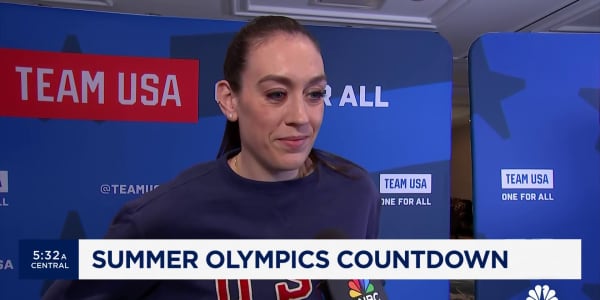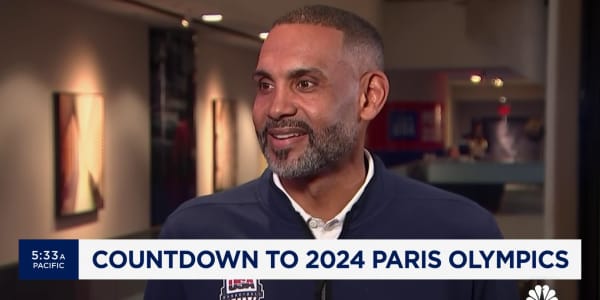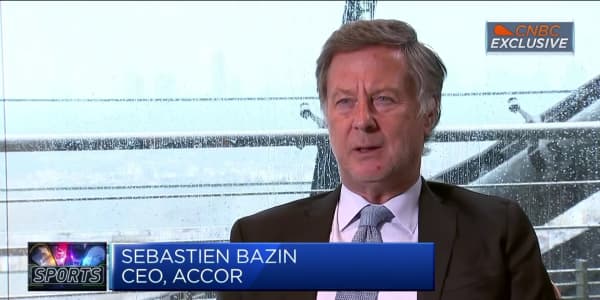A top International Olympic Committee official on Tuesday called Rio de Janeiro's preparations to host the 2016 Summer Olympics "the worst I have experienced," adding to a growing chorus of doubts about the city's ability to get ready for the Games without international help.
"We've become very concerned, to be quite frank," the official, John D. Coates, who is vice president of the committee, told reporters in Melbourne. "They really are not ready in many, many ways."
The remarks reflected similar criticism from the Olympic Committee's president in mid-April, when the body announced that it was sending outside experts to Brazil to monitor progress and speed up work in Rio.
"This is unprecedented for the I.O.C. to be sending in people like this," said Mr. Coates, who has made six visits to the city and called the situation in Rio worse than in Athens in 2004.
Read MoreWhy Wall Streeters love curling
However, he ruled out moving the Olympics to another city.
"There can be no Plan B; we are going to Rio," Mr. Coates said. "We've just got to make sure that we help the organizing committee deliver Games that will enable our athletes, the athletes of the world, to perform to the best of their ability."
Brazil is scrambling to host two international sporting events in two years, including the World Cup, which begins in June. Preparations for the two events have been plagued with delays, rising costs, street demonstrations, workers' strikes and deaths in stadium construction.
Read MoreCongrats on the Olympic medal—now back to work
Mr. Coates cited several daunting problems in Rio, which will be the first city in South America to host the Summer Olympics. He said that construction had hardly begun on the Deodoro sports complex, which will hold 11 Olympic events and is considered the second most important site after the Olympic Park. He also cited Rio's heavily polluted waterways as a concern for events like sailing, rowing, canoeing and the triathlon.
Only 35 percent of sewage in the state of Rio de Janeiro is treated, according to the state government, meaning that the sight and odor of polluted waterways like Guanabara Bay greet the city's visitors.
The Sports Ministry of the federal government has even studied the possibility of changing the site for Olympic canoeing from the Deodoro complex to Iguaçú Falls in the state of Paraná, about 900 miles from Rio.
Read MoreWhat's that medal worth? Hint: Forget the gold
Labor issues and social unrest also trouble the city. Shots were reported near the Olympic Park in early April during a conflict between striking workers and security guards. In recent weeks, violence has also increased between the police and residents in favelas, or slums, that are part of the city's "pacification" program, including many in Rio's touristic corridor.
The policing strategy has been a centerpiece of the state government's effort to allay international concerns about safety in Rio before the mega events.
The local Olympic Organizing Committee, called Rio 2016, defended the city's preparedness in response to the criticisms. It said that the construction of the Deodoro sports complex would begin in the latter half of this year and be completed in the first half of 2016.
Read MoreMade in where? Inside Sochi Olympic uniforms
"Rio will host excellent Games that will be delivered absolutely within the agreed timelines and budgets," a spokesman, Philip Wilkinson, wrote in a statement on behalf of the organizing committee.
The Rio de Janeiro city government has found itself under pressure not only from the international sporting bodies but also from the local population, which has protested the expenditures on international sporting events during huge street demonstrations and through social media, using catchphrases like "Fora, FIFA!" ("Go Away, FIFA!") and satirizing the city government's "Olympic City" slogan.
Nationwide street protests took off in Brazil during last year's Confederations Cup, a prelude to the World Cup, with demonstrators often denouncing the spending on new stadiums when basic services like public health and education were left wanting.
Christopher Gaffney, who teaches at Brazil's Federal Fluminense University and studies international sporting events, noted what he called a "radical change" in tone from local governments here when speaking about the Olympics or World Cup. In the past, officials would boast that the city would host model sporting events, he said, though they now often focus on justifying the events' costs to the local population.
Read MoreEmpty seats frustrate crowds at early Sochi events
"I think the political moment is very sensitive in Brazil, when people see their money going to international sports federations," Mr. Gaffney said. "Politicians no longer want to be associated with spending for these events."
In his characteristically blunt style, Rio's mayor, Eduardo Paes, defended himself from the harsh public statements from the international sporting body in a recent interview with Brazilian reporters.
"Probably these federations will keep complaining about me until the day the Olympics start, because sometimes they want us to do things that are too large," he said.




